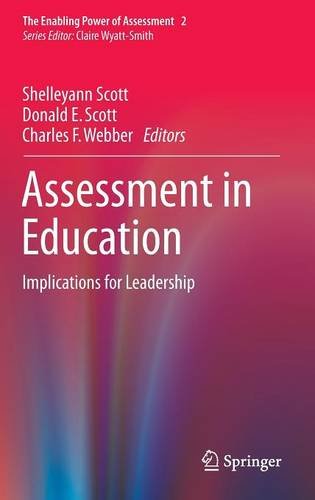

Most ebook files are in PDF format, so you can easily read them using various software such as Foxit Reader or directly on the Google Chrome browser.
Some ebook files are released by publishers in other formats such as .awz, .mobi, .epub, .fb2, etc. You may need to install specific software to read these formats on mobile/PC, such as Calibre.
Please read the tutorial at this link: https://ebookbell.com/faq
We offer FREE conversion to the popular formats you request; however, this may take some time. Therefore, right after payment, please email us, and we will try to provide the service as quickly as possible.
For some exceptional file formats or broken links (if any), please refrain from opening any disputes. Instead, email us first, and we will try to assist within a maximum of 6 hours.
EbookBell Team

4.8
44 reviewsThis book provides key insights into how educational leaders can successfully navigate the turbulence of political debate surrounding leading student assessment and professionalised practice. Given the highly politicised nature of assessment, it addresses leaders and aspiring leaders who are open to being challenged, willing to explore controversy, and capable of engaging in informed critical discourse.
The book presents the macro concepts that these audiences must have to guide optimal assessment policy and practice. Collectively, the chapters highlight important assessment purposes and models, including intended and unintended effects of assessment in a globalised context.
The book provides opportunities to explore cultural similarities and particularities. It invites readers to challenge taken-for-granted assumptions about ourselves and colleagues in other settings. The chapters highlight the cultural clashes that may occur when cross-cultural borrowing of assessment strategies, policies, and tools takes place. However, authors also encourage sophisticated critical analyses of potential lessons that may be drawn from other contexts and systems.
Readers will encounter challenges from authors to deconstruct their assessment values, beliefs, and preconceptions. Indeed, one purpose of the book is to destabilise certainties about assessment that prevail and to embrace the assessment possibilities that can emerge from cognitive dissonance.